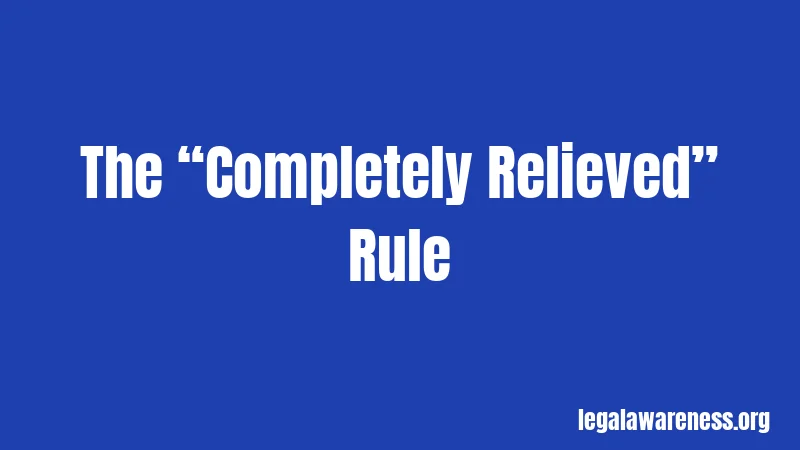Lunch Break Laws in Texas (2026): What Employers Must Do
Most people don’t realize they need to understand their break rights. Seriously. In Texas, the rules around lunch breaks can be confusing. But here’s the good news: once you know them, you’ll know exactly what your employer should be doing.
Let’s break down what the law actually requires. You might be surprised by what Texas says—and doesn’t say.
What Are Lunch Break Laws?

Lunch break laws are rules about when and how employers must give workers time to eat and rest. Think of them as your guarantee for a break during the workday.
These laws exist for a good reason. They help workers stay healthy and productive. They also prevent employers from working people too hard without a break.
So what’s the deal in Texas? Honestly, this part catches a lot of people off guard.
The Basic Rule: Texas Has No State Lunch Break Law
Here’s the thing. Texas doesn’t have its own state law requiring employers to give lunch breaks. Yep, you read that right.
Most people assume there’s a state law about this. It makes sense, right? But Texas leaves this decision mostly up to employers and federal law.
Now, pause here. This doesn’t mean you have zero protection. Keep reading.
Federal Law Steps In

When a state doesn’t have its own lunch break law, federal law takes over. The Fair Labor Standards Act (FLSA) is the main federal rule.
The FLSA says this: employers must pay workers for breaks under 20 minutes. Breaks longer than 20 minutes don’t need to be paid.
So a quick 15-minute break? You get paid. A 30-minute lunch break? That usually doesn’t get paid.
Pretty straightforward, right?
Paid vs. Unpaid Breaks
This distinction matters a lot. Let me break it down for you.
Short breaks (under 20 minutes): You must be paid for these. This includes coffee breaks, bathroom breaks, and quick rest periods. Your employer can’t make you take these unpaid.
Longer meal breaks (20 minutes or more): These can be unpaid. A typical 30-minute or one-hour lunch break usually doesn’t require payment. But there’s a catch.
During your unpaid lunch break, you need to be completely relieved of duties. You can’t be on call. You can’t be answering emails or helping customers.
Not sure what counts as unpaid? It’s basically time when you’re genuinely off work.
The “Completely Relieved” Rule

Here’s where it gets important. For an unpaid lunch break to actually be unpaid, you must be completely relieved from all work duties.
What does that mean? You’re not checking your phone for work. You’re not standing near your work station in case someone needs you. You’re not watching the shop floor.
You’re actually on a break.
If your employer requires you to stay at your desk. If they want you available. If they need you to help during lunch. Then you’re still working. You need to be paid.
Think of it like being on call. If you’re on call, you’re working. Even if you’re not actively doing something.
What About Meal Breaks in Specific Industries?
Some Texas industries have special rules. Health care workers, for example, sometimes have different break requirements.
In hospitals and nursing homes, meal breaks can sometimes be interrupted for emergencies. That’s because patient care comes first.
Construction workers might have different arrangements too, depending on their union agreement or employer policy.
Does your job have specific break rules? Ask your HR department. They should know the details.
Recent Updates and Changes
Texas labor laws haven’t changed dramatically in recent years. But federal rules keep getting stricter about when employers can require you to work during break time.
In 2024 and 2025, the federal Department of Labor has been more active about enforcing unpaid break rules. They’re cracking down on employers who don’t truly give unpaid lunch breaks.
Wage and hour lawsuits have also increased. More workers are fighting back when employers don’t follow the rules. So employers are paying more attention.
Honestly, this is good news for workers. It means enforcement is tightening.
What If Your Employer Won’t Give You a Break?
You have rights. Don’t assume your employer can just skip breaks.
First, check your employee handbook. Most employers have a break policy written down. Read it carefully.
Second, talk to your HR department or manager. Sometimes it’s just a misunderstanding. They might not realize they’re breaking the rules.
Third, if nothing changes, document everything. Write down when you didn’t get your break. Keep notes about dates and times.
Fourth, contact the federal Department of Labor’s Wage and Hour Division. They investigate unpaid work claims. You can file a complaint with them.
Stay calm and professional. But stand your ground. You’re entitled to breaks.
Break Rules During Training
New employees often ask about this. Do you get breaks during your first week of training?
Yes. Training time is work time. You still get the same break rights as any other employee.
If you’re in training for eight hours, you’re entitled to your breaks during that time. Your employer can’t skip breaks just because you’re new.
This one’s probably the most overlooked rule. Make sure your first week includes your regular breaks.
Part-Time and Contract Workers
Part-time workers often wonder if break rules apply to them. The answer? Usually yes.
If you’re a part-time employee in Texas, you still fall under federal law. You still get paid for breaks under 20 minutes.
Contract workers are trickier. Some contract agreements have different break rules. Read your contract carefully.
If you work for a temp agency, check with them. They might have specific policies. But federal law still applies in most cases.
Special Situations
Remote workers: If you work from home, break rules are the same. You still need unpaid break time. You still get paid for short breaks.
Multiple employers: Work two jobs? Each employer owes you break rights. They can’t take away your breaks because you work somewhere else.
Shift workers: Work overnight or split shifts? You still get your breaks. The length and timing might be different, but the rights stay the same.
Commission-based workers: Even if you make commission, you still get your breaks. Commission doesn’t change break rules.
What Happens If Your Employer Breaks the Rules?
If your employer isn’t giving you breaks or isn’t paying you for short breaks, that’s illegal. You can take action.
Back pay: You can demand payment for unpaid break time. This goes back as far as the law allows (usually two to three years).
Damages: You might get extra damages beyond just the lost pay. The law sometimes allows this.
Legal fees: In many cases, you can make your employer pay your lawyer’s fees if you win.
Attorney General complaints: Texas has an Attorney General who handles labor violations. You can file a complaint.
These aren’t small things. Break violations add up fast when you’re talking about months or years of unpaid time.
How to Document Break Violations
Documentation is everything if you need to take legal action. Here’s what you should track.
Write down the date and time you missed a break. Note how long the break should have been. Write what you were doing instead of taking a break.
Take screenshots if your employer sends work emails during your lunch. Save messages asking you to work during breaks.
Keep a simple calendar or spreadsheet. Update it every week. This shows a pattern over time.
Don’t be accusatory when documenting. Just stick to facts. Dates. Times. What happened. Nothing else.
This documentation becomes evidence. It matters a lot when you talk to lawyers or the Department of Labor.
When You Need Legal Help
Not every break issue needs a lawyer. But some situations definitely do.
You might need a lawyer if your employer owes you hundreds of hours of unpaid break time. If you’ve been denied breaks for months or years, get professional help.
You might also need a lawyer if you face retaliation after complaining about breaks. Firing someone for reporting break violations is illegal.
Retaliation lawsuits are serious. Don’t handle these alone. Find an employment lawyer in Texas who specializes in wage and hour cases.
Many lawyers work on contingency. That means you don’t pay unless you win. Your settlement or judgment pays the legal fees.
Frequently Asked Questions
Does Texas law require employers to give lunch breaks? No, Texas has no state law requiring lunch breaks. Federal law is what applies. Federal law says employers must pay for breaks under 20 minutes, but longer lunch breaks can be unpaid.
Can my employer make me work during my lunch break? Not really. If you’re not actually off work during your lunch break, your employer must pay you. You need to be completely relieved of all duties.
What if I work only four hours a day? Federal law still applies. Short breaks need to be paid. Longer breaks can be unpaid. The length of your shift doesn’t change the rules.
Can my employer take away my breaks to save time? No. That’s illegal under federal law. They can’t make you skip breaks or work through lunch to meet deadlines.
What should I do if my employer violates break laws? Document it, talk to your HR department, and if nothing changes, contact the federal Department of Labor’s Wage and Hour Division.
Final Thoughts
Here’s what you need to remember: Texas follows federal lunch break law. You deserve short breaks that are paid. You deserve an actual lunch break where you’re truly off work.
Don’t assume your employer knows all the rules. Many don’t. But that’s not your problem. The law is clear.
If something feels wrong about your breaks, trust that feeling. Look into it. Document it. Get help if you need it.
You’re entitled to rest during your workday. Stand up for that. The law is on your side.
References
Federal Labor Standards Act (FLSA) https://www.dol.gov/agencies/whd/flsa
U.S. Department of Labor – Wage and Hour Division https://www.dol.gov/agencies/whd
Texas Workforce Commission (TWC) https://www.twc.texas.gov
Texas Attorney General – Labor Division https://www.texasattorneygeneral.gov/divisions/labor
Texas State Law Library – Employment Law https://www.sll.texas.gov
